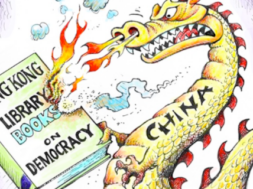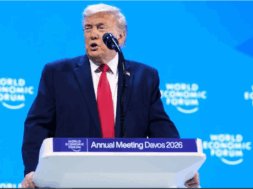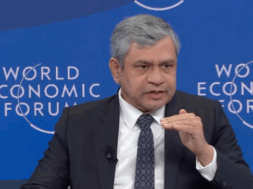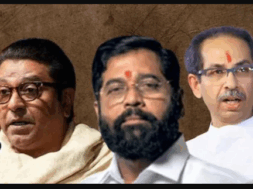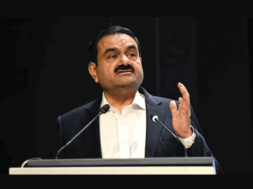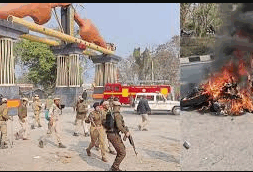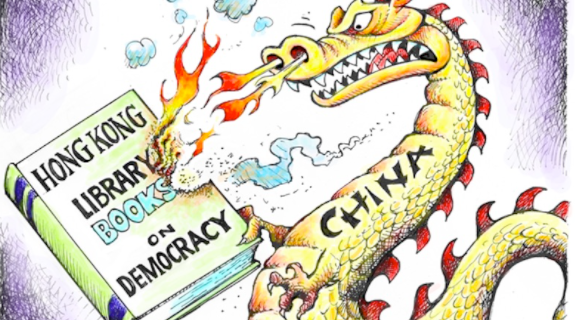
US Summit on Democracy: Now, even the uninvited Dragon claims it is ‘democratic’!
Virendra Pandit
New Delhi: Reacting sharply to US President Joe Biden keeping Beijing out of and including Taipei instead in, the 111-nations’ online Summit For Democracy, scheduled for December 9 and 19, the “People’s Republic of China” (PRC) has claimed it is also a “democracy.”
According to the media reports, a peeved China has embarked on a furious public relations campaign to create another global narrative on what makes up democracy and attack the US political system, as President Biden prepares to open the Summit for Democracy this week.
Russia and China are among the few countries left out in the cold for the two-day event. Even terror exporter Pakistan, China’s “all-weather friend”, is on the US list.
After initially meekly protesting on state-controlled media for its exclusion, Beijing launched an offensive against the US democracy.
On Saturday last week (December 4), China held a similarly themed what it called “International Forum on Democracy”. Its hand-picked State Council issued a ‘white paper’ called “China: Democracy That Works”, which claimed how the Dragon had developed its own ‘model of democracy’.
Since 1949, the Communist Party-ruled PRC has been only a one-party state. But the country has its own brand of the legislature, called the National People’s Congress (NPC), whose nearly 3,000 members are handpicked from across China’s regions and provinces and even the armed forces. A vast majority of them are Communist Party members.
Ridiculed as a “rubber-stamp parliament”, all NPC members meet once a year, with most decisions made by a far smaller Standing Committee.
China neither has a free media nor an independent judiciary — both of which are crucial to a properly functioning democracy.
British weekly The Economist’s Intelligence Unit’s Democracy Index ranked China as an “authoritarian regime”, among 151 out of 167 countries and territories for 2020. The semi-autonomous city of Hong Kong, which China wants to crush as a hotbed of democracy, was termed a “hybrid regime”.
The ranking assesses a country’s democracy based on five categories: electoral process and pluralism, civil liberties, the functioning of government, political participation, and political culture. Ironically, the ranking termed even the US a “flawed democracy”.
China’s so-called ‘democracy summit’ included a long list of attendees, including Spanish Communist Party chief José L. Centella Gómez and former Japanese Prime Minister Yukio Hatoyama, who spoke about ‘shared common values’ between different social systems, according to Chinese state broadcaster China Global Television Network (CGTN).
China has, for long, been trying to offer itself as an alternative to all that the US stands for. During the Trump Administration, for example, when the White House pulled out of major global events like the Paris Climate Agreement and even threatened to quit the World Health Organization (WHO), Beijing painted itself as a global, multilateral, and responsible leader.
In contrast, President Biden, who took office in January 2021, has frequently cited the struggle between democracy and authoritarianism, which is also a major theme at this week’s democracy summit to which they have invited representatives from 111 countries. The guest list also includes “several states with authoritarian characteristics”. Three countries attending — Angola, Democratic Republic of the Congo (DRC), and Iraq — are considered “Not Free” in the 2021 Freedom in the World report by Freedom House, while a further 31 are considered “partly free”.
Shortly after the US announced the Summit For Democracy in late November, Chinese Foreign Ministry Spokesperson Wang Wenbin called US democracy a “disastrous state” that has “privatized” democratic values.
Also, on Sunday, China’s Ministry of Foreign Affairs released a critical report about the state of democracy in the US, which also said a single “yardstick” should not be used to “measure diverse political systems in the world”.
The US Summit is to be accompanied by a fresh round of sanctions from the US Treasury on institutions and individuals who “undermine democracy” and carry out human rights abuses, according to the media reports. The US had already sanctioned Chinese officials accused of involvement in the crackdowns in the far western region of Xinjiang and Hong Kong, to which China has responded sharply.
